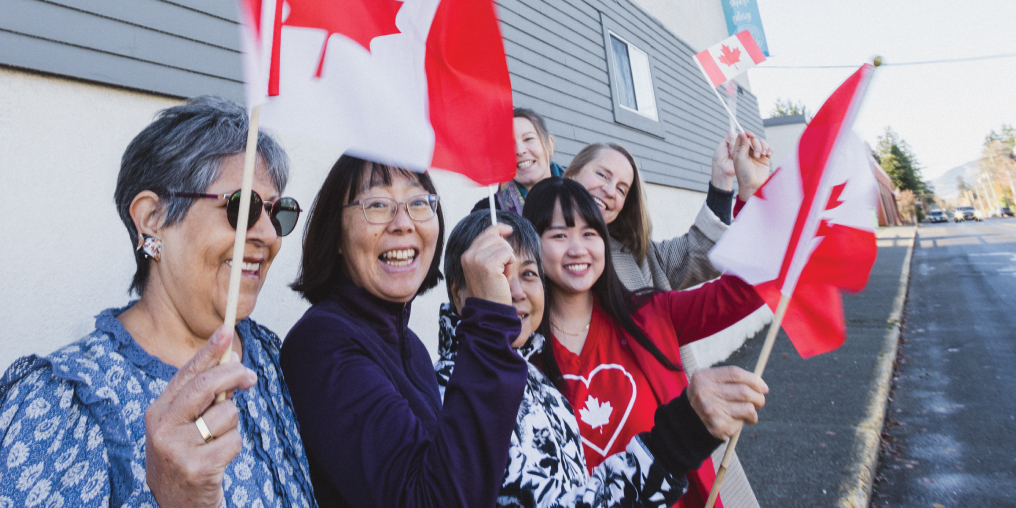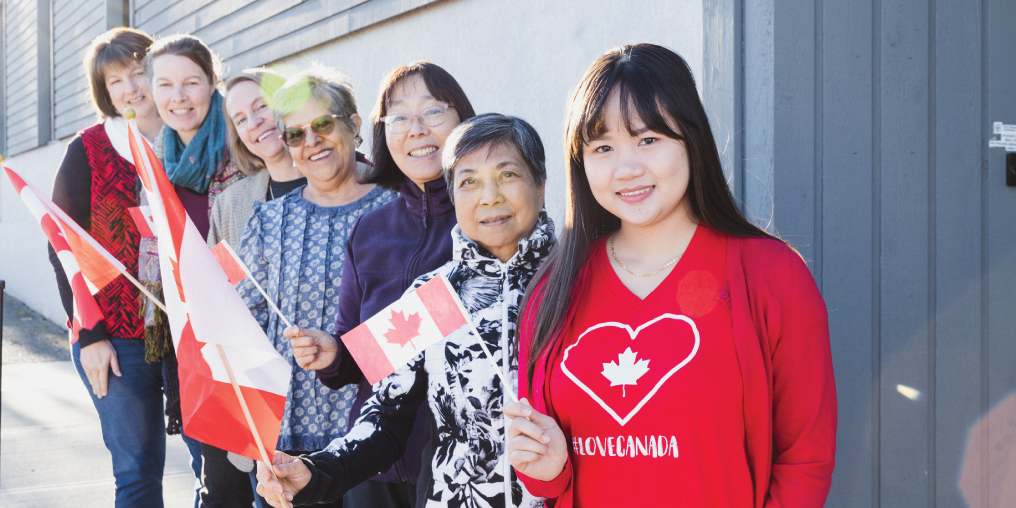Except for Indigenous people, Canadians are settlers—immigrants themselves, or the descendants of immigrants. After my parents and I arrived in Canada from England and Ireland when I was four, we were helped with settling in by family and friends who had come before us. Being English-language speakers eased our family’s transition to the new country.
But transition is not easy for all newcomers. A few months ago, I was in my front yard when a delivery van pulled up next door. A middle-aged man got out to bring a package to my neighbour’s house, and I recognized the audiobook playing inside the van—Joseph Boyden’s Three Day Road. I told him I knew the book he was listening to. “Ah, yes,” he said. “It’s for my English class.” He explained that he’d been an engineer in Syria but needed to take English-language classes so that he could return to his profession in Canada. “For now,” he said, pointing to the van, “I do this because I need to support my family,” and with a wave he drove off to his next delivery.
This encounter illustrates why the Immigrant Welcome Centre—which offers services as the Multicultural & Immigrant Services Association (MISA)—was established in the Comox Valley 30 years ago. The organization’s vision is to help create “a North Island region that embraces diversity and inclusivity while actively engaging with the vibrant cultures in the region, and where newcomers feel welcome, safe, and respected.”
When I first came to the Comox Valley in the 1990s, the population was much more homogenous than it is now. MISA executive director Jim Brennan agrees that the area has become much more diverse, especially in the past decade. “The good news about this place has gotten out,” he says. “Our communities are quite welcoming, gracious, and engaging [with newcomers].”
The overwhelming majority of people are supportive of immigration to Canada and to this area, he says, because they’ve seen the benefits that newcomers bring. And immigration is a priority for the federal and provincial governments—much of the funding for MISA comes from the British Columbia government.
Increasingly, newcomers from varied cultures are contributing to the strength of the community. Global matters have an influence; Brennan says that MISA has assisted about 120 people who have come from Ukraine in the months since Russia invaded their homeland.
“The number one challenge [for MISA] is language programming,” says Brennan. “Not just literacy, but formal language learning that includes the nuances of workplace language.” Being able to find employment is important to mitigate the possibility of poverty for newcomers, but the need for language learning is so great that there is a full-year waitlist. Campbell River and Courtenay each have an Immigrant Welcome Centre that runs two ongoing language classes, but Brennan says that they could run at least double that if they had the funding and the staff.
MISA is also actively involved in anti-racism advocacy; one of its declarations says: “We believe that it is the duty of all residents, acting individually and together, to strive for the achievement of a community in which we acknowledge our diversity by affirming our differences and welcoming the contributions that arise from each resident’s unique gifts.”
For my parents and me, the transition to living in Canada was relatively trouble-free. But for many, it’s a tremendous challenge to learn a new language and adapt to cultural differences. MISA’s work is critical in helping recent arrivals integrate successfully into Comox Valley life so they can thrive and, in turn, share their unique gifts to the benefit of all who live here.

MISA HELPS NEWCOMERS
The Immigrant Welcome Centre supports 800 to 1000 clients annually between the Comox Valley and Port Hardy. MISA’s multilingual staff offers assistance with many crucial tasks like:
• English-language learning
• Completing forms and documents
• Citizenship preparation
• Immigration and refugee protection
• Support
• Digital literacy training
• Employment support
• Interpretation and translation
• Housing information
• Health care information
• Assessment of education needs
• Childcare and family concerns
• Income tax intake and referral
• Access to legal advocates
• Human-rights support





